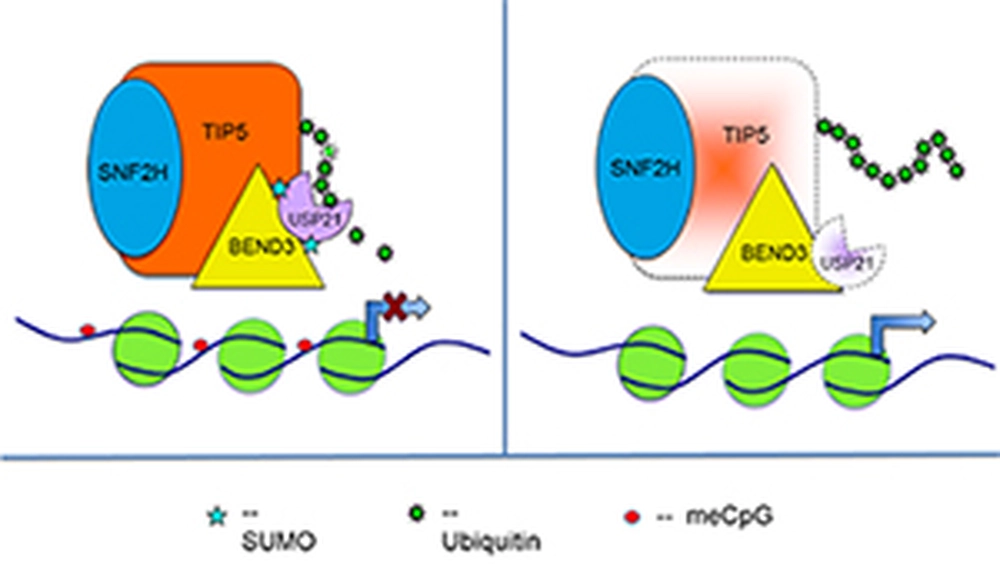
Prasanth and colleagues show that BEND3 directly binds to rDNA promoter in a sequence specific manner and induces chromatin modifications leading to a transcriptionally repressive chromatin environment.
Rate of ribosome biogenesis dictates protein translational capacity of cells. Ribosomal RNA (rRNA), transcribed from tandem repeat units (rDNA), forms the major component of the ribosome. Therefore, transcriptional output from rDNA directly correlates with cell growth and proliferation and is often upregulated in several cancers.
Several mechanisms ensure controlled transcriptional output from rRNA genes. Transcriptional repression of a subset of rRNA genes is essential to maintain equilibrium in ribosome abundance. The study spearheaded by Dr. Abid Khan, a postdoctoral associate from Supriya Prasanth’s laboratory, identified a BEN domain-containing protein, BEND3, as a novel transcriptional repressor of rRNA genes.
Prasanth and colleagues show that BEND3 directly binds to rDNA promoter in a sequence specific manner and induces chromatin modifications leading to a transcriptionally repressive chromatin environment. BEND3 associates with the nucleolar-remodeling complex (NoRC), a major complex known to establish and maintain rDNA heterochromatin. SUMOylated BEND3 stabilizes Tip5, the bona fide component of NoRC via association with USP21 deubiquitinase. This study provides mechanistic insights into the regulation of NoRC stability and its implication in rDNA transcriptional repression. This work is published in PNAS (USA).